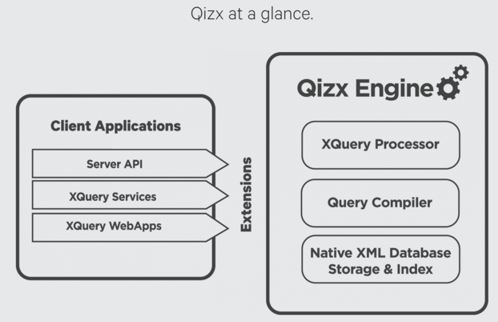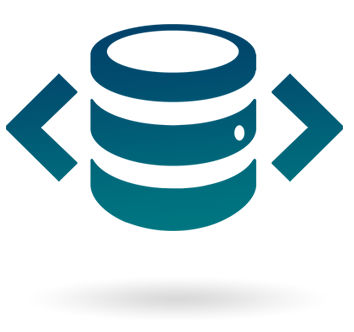| Qualcomm Releases NoSQL Qizx |
| Written by Kay Ewbank |
| Monday, 23 February 2015 |
|
Qualcomm has launched Qizx, a noSQL, native XML database for text-intensive projects where you need quick access and searching of documents. Qualcomm acquired Qizx when it bought Axyana Software back in 2013, and has been developing the database since then. The new version was launched at the start of the year and is now available on the AWS Marketplace. Qualcomm describes the new version as enterprise ready with high availability, improved performance, reliability, and efficient document indexing and search power. It works with well-formed XML documents, with no DTD or schema required.
Qizx offers automatic indexing of XML content, so avoiding the need to create ad-hoc indexes for application queries. By default, the full contents of documents are indexed, including the element structure, attribute values (in text, number, and date form when applicable), simple element content, and full text. You can also make use of custom indexing of XML content via user-defined data sieves. Full-text indexing can also be customized by providing plugins for word tokenizing, stemming and thesaurus lookups. The indexes mean query times are minimized, and Qizx uses the XML structure to optimize queries automatically. Document Type Definition (DTD) and schema are optional. Qizx supports XQuery (including Full-Text and Update extensions) and conforms to W3C specifications. To support XQuery, XML documents indexed in Qizx have an internal representation that complies with the XQuery/XPath 2 data model. Their logical structure is fully preserved and documents can be exported back into XML without information loss (except for physical details like entity boundaries and CDATA sections). While Qizx is NoSQL, it supports ACID Transactions and updates. Queries can be completed without interfering with concurrent updates; and backups can be performed while the Qizx engine is running. The software comes integrated in a REST server that can be accessed by remote clients and applications.
More InformationRelated ArticlesFacebook Apollo NoSQL Database
To be informed about new articles on I Programmer, install the I Programmer Toolbar, subscribe to the RSS feed, follow us on, Twitter, Facebook, Google+ or Linkedin, or sign up for our weekly newsletter.
Comments
or email your comment to: comments@i-programmer.info |
| Last Updated ( Tuesday, 24 February 2015 ) |



